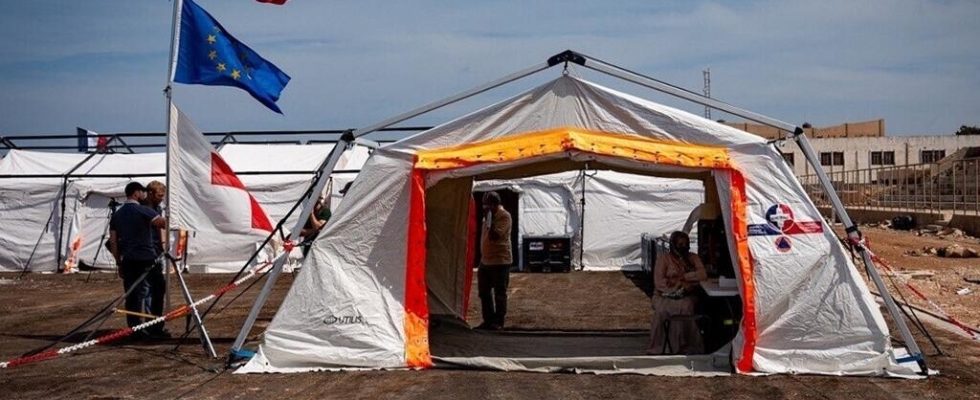Humanitarian aid is trickling into the area devastated by the storm and its consequences. This Sunday, a third French civil security plane was able to land in Derna with 30 tons of equipment.
2 mins
It took ten hours for fifty French civil security rescuers to set up this field hospital. One part opened at noon, the other at 4 p.m., says Colonel Isabelle Arnaud, emergency doctor. “ As soon as we opened at noon, the first patient presented itself at the emergency entrance. » The hospital has two structures. “ Part of it concerns the reception and sorting of emergencies. Then there is the surgical support detachment, which includes the operating room, intensive care unit, maternity ward, the entire technical platform in fact. », Details the soldier.
For the moment, it is mainly minor wounds which are being treated by the caregivers on site, no injuries directly linked to the floods in Derna. And there is an explanation. “ We will see what population remains in the city after the events. Because the people who survive often flee the city first to reassure themselves, to find families who live in another region of the country. So we’ll see how it goes. » According to this doctor, it is word of mouth and social networks that could create an influx of patients.
Access to safe water, the first project
Libya is still counting its deaths, but it is difficult to establish a precise toll after the floods in Derna. The latest assessments oscillate between 3,000 and even 11,000 victims. The search continues, thousands of people are still missing. Every day, bodies are found and buried.
While a large number of bodies are still found under the rubble, what risks do the deterioration of bodies pose for health and more particularly for access to water? “ These people did not die of an infectious disease, so the bodies themselves do not normally pose a risk. Of course, if they are in contact with water, and it is water that people drink, that is a risk. », replies Margaret Harris, spokesperson for the WHO.
So, after any disaster like this, ensuring that drinking water is accessible as quickly as possible will be one of the priority challenges, particularly by identifying uncontaminated water sources. Products to disinfect water will be fundamental. “ The other element which is crucial, continues the expert, it’s about informing people: explaining to them what drinking water is, where we find it, what’s happening, and how they can protect themselves. »
